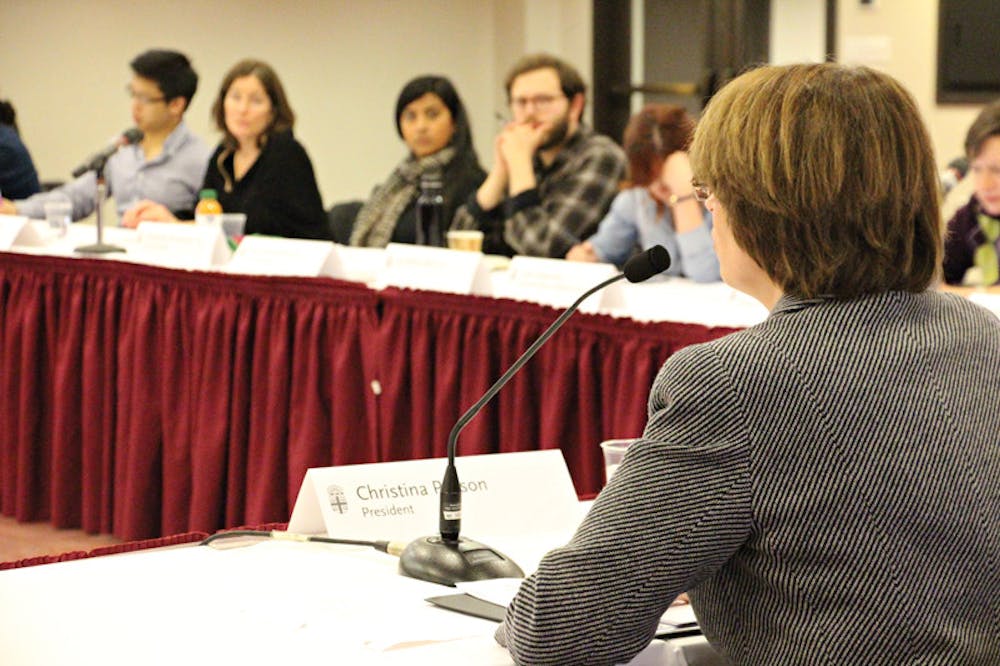The Brown University Community Council focused on financial concerns such as the budget deficit and revenue growth, as well as policy related to sexual assault and faculty diversity, as its meeting Wednesday.
President Christina Paxson P’19 presented major fiscal decisions made at the February Corporation meeting, noting that the body approved a 4.4 percent increase in tuition and fees and an 8 percent increase in financial aid for next academic year. She highlighted the budget deficit as the most pressing issue at hand.
“A budget deficit of this size is something we really need to address,” Paxson said. In fiscal year 2014, the deficit amounted to $8.8 million, and it is expected to drop to $6.7 million in fiscal year 2015, she added.
“One way out of this is to focus on revenue growth,” Paxson said. New “research revenue” and master’s programs as well as a jump in the undergraduate student population will drive this growth, she added.
Sexual assault reform and the Task Force on Sexual Assault’s interim report, which was released in December, also drove much discussion.
The task force aims to finalize a comprehensive policy on gender violence and develop a hearing process for student complaints by the end of March, said Russell Carey ’91 MA’06, executive vice president for planning and policy and co-chair of the task force.
Carey said student feedback on the report has been largely “positive” since its release. “My sense is that the response has been positive,” he said. “I was hoping for more engagement, but we still have time for that.”
Many of the report’s recommendations “aren’t groundbreaking,” Carey said. But the University has an opportunity to become a leader in sexual assault policy regarding graduate and medical students, he said, noting that many peer institutions lack systems to address sexual assault for grad and medical students.
“The biggest issue seems to be the process itself as it relates to issues between faculty and students,” said Joel Simundich GS, president of the Graduate Student Council. “There is a perception that faculty are really privileged in the complaint process and the judicial process.”
The final portion of the meeting centered on a draft of the Diversity Action Plan, which addresses faculty diversity and was published at the beginning of the semester.
“We need to have a critical mass of role models who can support the needs of an ever-growing diverse student body,” said Liza Cariaga-Lo, vice president for academic development, diversity and inclusion. This involves improving faculty recruitment and retainment, she added.
The plan also suggests an annual diversity report, which would serve as “a moment to take a look at where we stand in metrics that we will be developing,” Cariaga-Lo said.
The overarching theme of the plan is to “help people feel that they are a part of a university that really cares about their well-being,” she added.





